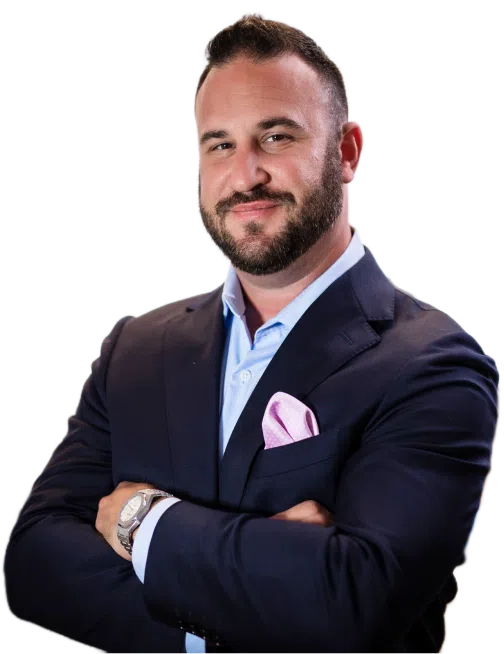Do not face the courts alone if you have an upcoming protection order hearing. Should a judge grant an injunction or restraining order against you, it will become public record, and future employers and landlords will be able to see the protection order on background checks.
Contact the Weinstein Legal Team today at 954-845-0505 and ask to speak with protection order hearing lawyer Matt Shafran. Don't wait. The sooner you get in touch with our team, the sooner we can begin working to prove your innocence.
Areas in Florida We Represent
Do you have an approaching protection order hearing in Florida? Seek the legal assistance of a criminal defense attorney immediately. We represent individuals in Broward County, Miami-Dade County, and Palm Beach County including the following areas:
- Boca Raton
- Boynton Beach
- Coral Springs
- Delray Beach
- Fort Lauderdale
- Hollywood
- Lake Worth
- Palm Beach Gardens
- Pembroke Pines
- Plantation
- Pompano Beach
- Wellington
- West Palm Beach
HIRE A DEFENSE ATTORNEY FOR PROTECTION ORDER HEARING TODAY
What Is a Protection Order Hearing?
A protection order hearing is an official court date where a judge will determine whether the grant another person an order of protection (also sometimes called an injunction or a restraining order) against you. When an order of protection is granted against you, you must cease contact with the petitioner. You will have to remain a set physical distance from the opposing party at all times and will not be able to contact them by phone, text message, or any other means.
If another individual believes that you pose a threat to them or their dependents, they may file for an order of protection. When they submit their initial request, the courts will likely grant them a temporary order with a full hearing scheduled for a later time.
Once a judge grants a temporary order of protection, the opposing party will likely have you served with papers detailing the motion, and the courts will set a date where you will get to appear and plead your case. It is at this order of protection hearing that you can present a defense with a lawyer representing you.
The opposing party will have to show the courts their evidence at the order of protection hearing, proving that you are a danger. Similarly, you may present all evidence proving you are not. At this hearing, a judge will either grant a permanent order of protection or dismiss the case against you. For this reason, you must have diligent and aggressive legal representation to prove your innocence. You may have witnesses testify on your behalf, submit police reports that document any domestic disturbances and have a judge review electronic communications, including text messages and e-mails between yourself and the opposing party to help aid in their decision.
Protective Orders Hearings in Florida Domestic Violence Cases
While there is a common misconception that domestic violence only occurs between people involved in a romantic relationship, the legal definition in the state of Florida is much more broad. According to Florida law, domestic violence includes any form of battery, assault, stalking, kidnapping, or false imprisonment enacted by one member of a household to another.
By this definition, domestic violence cases may occur between roommates, siblings, parents and children, spouses, and any other two people who reside under the same roof regardless of familial relation. It can also occur between former romantic partners, separated spouses, and individuals who are still currently married. The definition applies to those who are related by blood as well as by marriage, those who currently live together as well as those who formerly lived together, and individuals who share a child whether or not they have ever shared a home.
When a person petitions for an order of protection hearing to grant a restraining against you to prevent domestic violence, it can pose particularly unique challenges. First, if you are currently living with the opposing party and the judge does grant the permanent order, you will likely have to find another place to live. When a judge grants a restraining order, it becomes your responsibility to avoid contact with and proximity to the other person; it is not their job to avoid you. Additionally, if you share a child with this person, the order may extend to cover the dependent as well, meaning you will not be able to see your kids and may lose visitation rights, have to have supervised visits, and more.
Hiring an attorney to represent you in court can help you protect your rights, keeping you in your home, and maintaining contact with your children. Do not take this chance in court alone and attempt to fight the order of protection without the assistance of an aggressive attorney. You have too much to lose.
Florida Statute § 790.401 for Protection Order Hearing
Florida statute § 790.401 discusses risk protection orders in more depth. The statute explains that a petitioner, or the person filing for an order of protection against you, must apply for the restraining order in the county where either they reside or the county where you reside if the two jurisdictions are not the same. Under this statute, the defendant in the case, you, will be known as the "respondent."
An essential part of this statute outlines whether the respondent is in possession of or has access to firearms and weapons. If another person files an order of protection against you as a respondent, you will have to make the courts aware of what types of weapons and guns you own, how much and what type of ammunition you have, and more. Additionally, anyone who lives with you or has a close relationship with you may be made aware of the restraining order and the possibility of violence against them.
The courts will have 14 days to hear a case regarding the petition, at which point you will need to appear in court. It is possible that the judge may order you to turn over possession of your weapons. Do not allow yourself to lose this constitutional right. Hiring an attorney presents you with the best opportunity to defend your case and retain control of your legally obtained firearms.
Contacting an Attorney for Protective Order against Domestic Violence in Florida
If you have a court date for a protection order hearing, it is imperative that you contact a restraining order attorney in Florida immediately. Should a judge grant a petitioner a permanent injunction, you stand to lose quite a few of your rights. However, it is possible to fight a restraining order in court to clear your name and protect your freedoms.
When a judge grants an injunction against you, you may have to surrender your firearms and weapons. Additionally, you may have to cease contact with other important members of your family, such as your children. It is even possible that you will need to find a new place to live. These consequences are quite steep and can have a significant impact on your quality of life.
Criminal defense attorney Matt Shafran is ready and willing to fight your case and to prove your innocence to the courts. When you hire Weinstein Legal, you will receive access to our entire team and the many experts we work with. We may be able to employ special defense tactics, such as hiring an investigator to uncover hidden facts in your case and to bolster your defense.
Do not wait to contact a defense attorney for a protection order hearing. Weinstein Legal is here for you 24-hours a day, 7-days a week. When you work with attorney Matt Shafran, you will have access to counsel at all times. We have offices in three major Florida cities, serving Central and South Florida:
Call today for your free case evaluation. Contact 954-845-0505.














